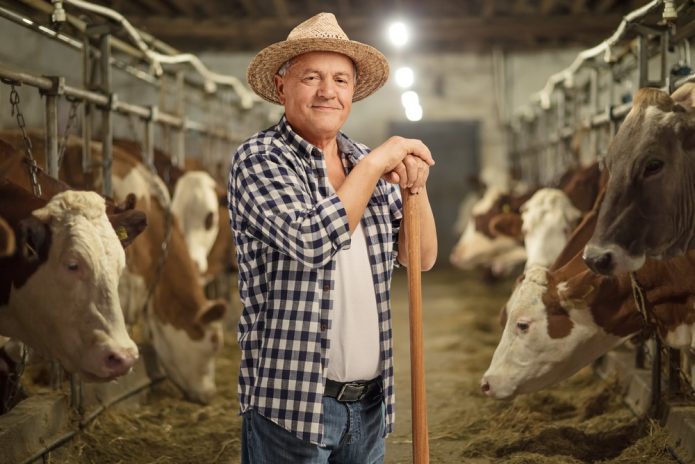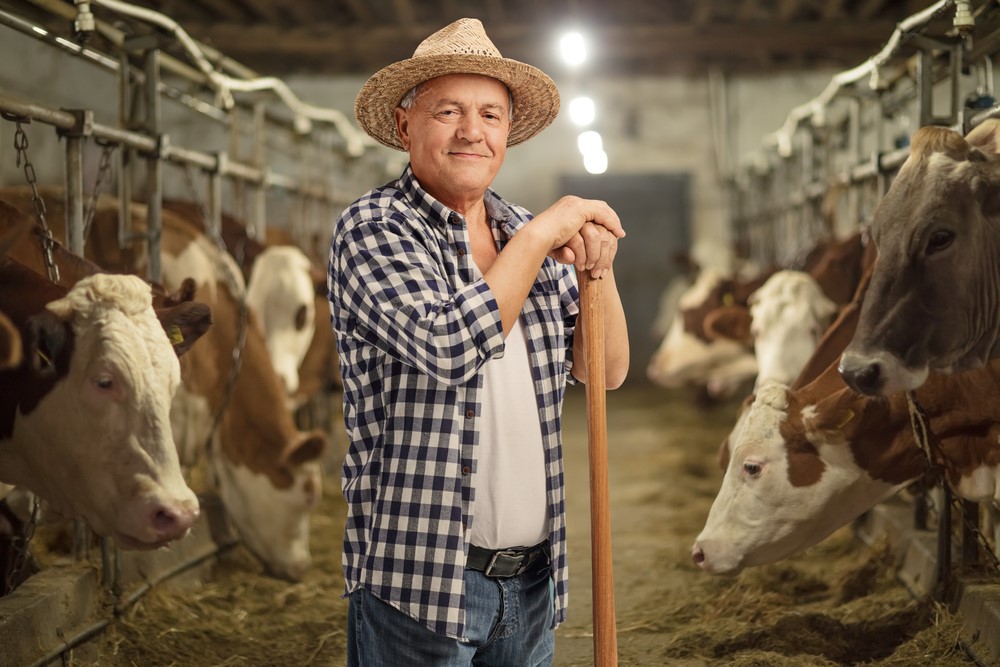
(Photo: John Smith / Shutterstock)
Republicans are dead set on rolling back taxes for wealthy Americans this fall. High on their list of targets is the estate tax, which is paid on the inheritances of the very wealthy – only families worth $11 million or more are subject to it.
This is a tax that primarily benefits people in limos, but Republicans have offered a strange populist fig leaf to justify repealing it: images of America’s farmers and ranchers.
The latest astroturf campaign is a slick website and video campaign called “Cattlemen for Tax Reform,” sponsored by the National Beef Cattleman’s Association.
The site features California rancher Kevin Kester, who comes from a line of farmers in the state. Kester says that “trying to figure out how to pass the ranching operation to the next generation” is “the greatest challenge that keeps him up at night.”
The implication is that a tax on his estate would hurt his family business.
Indeed, the Kester family was subject to an estate tax in the 1990s, when the wealth exemptions were considerably lower, but it’s highly unlikely that estate taxes at their current level will pose a threat to continuation of this family enterprise.
Meanwhile, Kester has cashed $365,208 in subsidy checks from the USDA while complaining about the big bad government.
We’ve been here before. Back in 2000, estate tax repeal proponents pulled a similar stunt to make family farmers the icons of their repeal campaign, even delivering a repeal bill to President Clinton on a tractor. Lynn Cornwell of Glasgow, Montana, the president of the National Cattlemen’s Beef Association at the time, drove the tractor through the streets of Washington, D.C.
Cornwall complained at the time that the estate tax “takes away all incentive of growing your business.” Speaking of incentives, he cashed $415,015 in farm subsidy checks between 1996 and 2001 from those taxing tyrants in Washington while grazing his cattle on federal lands at subsidized rates.
Clinton vetoed that 2000 estate tax repeal bill. “Half the benefit of that bill that came here on a tractor goes to 3,000 people,” Clinton quipped, “and I’ll bet you not a single one of them ever drove a tractor.” The former president went on to boast, “I’ll bet you if I had a tractor-driving contest with any of those 3,000 people, I would win.”
Then House minority leader Richard Gephardt made an even more prescient observation: “If Republicans were honest about the beneficiaries of their estate tax break,” he said, “it would have been delivered by Donald Trump in a stretch limo, not a farmer on a tractor.”
Investigative journalists have given Gephardt’s barb some weight.
David Cay Johnston, who won the Pulitzer Prize in 2001 for his tax reporting at The New York Times, traveled across the farm belt in search of the proverbial farmer who’d lost their farm because of the estate tax. He interviewed farmers and farm groups, but could find no examples.
Neil Harl, an economist from Iowa State University whose respected tax advice made him a household name among Midwest farmers, also said he’d never found a case of a farm lost to the estate tax. “It’s a myth,” said Harl.
Reporters across the country challenged the American Farm Bureau to produce a single example of a farm lost because of the estate tax. On April 19, 2001, the organization sent out an urgent call to state farm bureaus trying to recruit examples. “It is crucial for us to be able to provide Congress with examples of farmers and ranchers who has lost farms … due to the death tax,” they pleaded. They had no luck.
Meanwhile, groups that represent real small farmers with tractors continue to support estate tax reform, but not repeal. They believe concentrations of farmland pose a threat to agriculture, just as concentrations of wealth pose a threat to democracy.
“The National Farmers Union, through its grassroots policy, respects what the estate tax represents,” said union president Roger Johnson in testimony to the Treasury Department. “We are not opposed to the estate tax.”
When defenders of the estate tax have proposed a “carve out” to exempt the handful of remaining farms or ranches that pay estate taxes, in fact, the anti-tax crusaders oppose it. They don’t want to lose their homegrown farmer fig leaf.
All this farm talk mystifies who actually pays the tax. Most estate taxpayers live in big cities and wealthy states such New York, Florida and California.
According to new research by the Center on Budget and Policy Priorities, 40 percent of taxable estates are in those three states. Meanwhile, only 3.5 percent of taxable estates are in the eight largely rural farming and ranching states of Iowa, South Dakota, North Dakota, Nebraska, Montana, Idaho, Wyoming, and Kansas.
Instead of farmers in overalls, picture Tiffany Trump or members of the president’s cabinet when you think of the estate tax. If Congress abolishes it, the president’s children stand to inherit billions more.
Here’s the challenge for investigative reporters and congressional researchers: Find out who is paying the bills for the Cattlemen for Tax Reform. And find a real farm that has been lost to the estate tax. And since wealth exemptions rose dramatically in 2012, show us a farm or ranch that is at risk under the new rules.
They won’t be able to produce an example. They may find someone who’s been inconvenienced or had to pay a planner. We’re all inconvenienced when we have to do our taxes. Heck, I’d rather go fishing.
Let’s stick to the estate tax basics. The tax raises substantial revenue exclusively from multimillionaires and billionaires. If you abolish the estate tax, who do you think will fill the gap?
